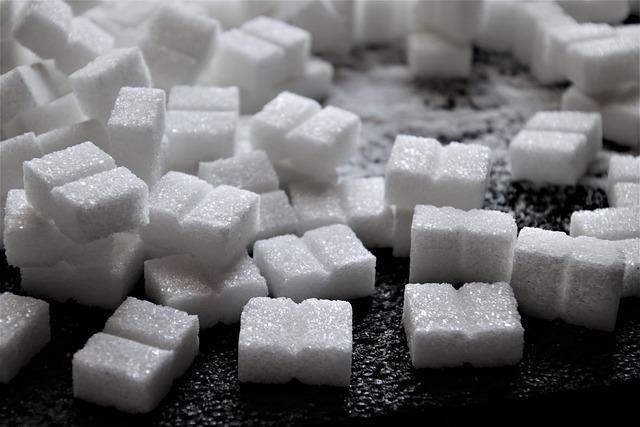In the ever-evolving landscape of diet trends and weight loss strategies, carbohydrates have emerged as one of the most debated topics. Once celebrated as a staple of a balanced diet, carbs have increasingly become the villain in many modern nutritional narratives. As the popularity of low-carb diets like keto and Atkins continues to rise, a growing number of people are questioning whether cutting out carbs entirely is the secret to effective weight loss. This article delves into the science and speculation surrounding carbohydrates, exploring whether avoiding them altogether is a sustainable and healthy path to shedding pounds, or if it’s just another dietary myth waiting to be debunked. Join us as we unravel the complexities of carbs and their role in your weight loss journey.
Exploring the Role of Carbs in a Balanced Diet
Carbohydrates often get a bad rap in the world of dieting, but they play a vital role in a balanced diet. These macronutrients are a primary energy source for the body, fueling everything from your daily jog to your brain’s cognitive functions. Rather than eliminating all carbs, it’s essential to understand which types can support your weight loss goals while maintaining overall health. Consider focusing on complex carbohydrates like whole grains, legumes, and vegetables. These provide fiber, which can help you feel full longer and support digestive health.
- Whole Grains: Think quinoa, brown rice, and oats. These are packed with essential nutrients and fiber.
- Legumes: Beans, lentils, and chickpeas are not only great sources of protein but also of complex carbs.
- Vegetables: Incorporate a variety of colors on your plate to maximize nutrient intake.
Simple carbohydrates, such as those found in sugary snacks and white bread, are often less nutrient-dense and can lead to spikes in blood sugar levels. Moderation is key, and by prioritizing nutrient-rich carbs, you can create a sustainable diet plan that supports weight loss without sacrificing energy or health.
Understanding Good vs. Bad Carbs for Weight Loss
When embarking on a weight loss journey, understanding the difference between good and bad carbohydrates can be pivotal. Good carbs, often found in whole grains, fruits, and vegetables, are packed with fiber and essential nutrients that provide long-lasting energy and help maintain stable blood sugar levels. These carbohydrates are digested slowly, keeping you full and satisfied for longer periods. Incorporating them into your diet can actually support your weight loss goals by preventing unnecessary snacking and overeating.
- Whole grains: Brown rice, quinoa, and oats
- Fruits: Apples, berries, and bananas
- Vegetables: Sweet potatoes, broccoli, and spinach
On the flip side, bad carbs are typically refined and stripped of their nutrients and fiber, leading to quick digestion and spikes in blood sugar. Foods like white bread, pastries, and sugary drinks fall into this category. These can cause energy crashes and trigger cravings, making it harder to stick to a calorie deficit necessary for weight loss. By reducing the intake of these carbohydrates, you can help manage your appetite and improve overall health.
- Refined grains: White bread, pasta, and pastries
- Sugary snacks: Candy, cookies, and sodas
- Processed foods: Chips, crackers, and packaged snacks

The Science Behind Carbohydrate Metabolism
At the heart of how our bodies utilize carbohydrates lies a fascinating and intricate process. Carbohydrates, often vilified in the realm of weight loss, are essential nutrients that our bodies convert into glucose, the primary source of energy for our cells. This transformation begins in the mouth with enzymes breaking down complex carbohydrates into simpler sugars, continuing in the small intestine where they are absorbed into the bloodstream. Once in the bloodstream, glucose can be used immediately for energy, or stored in the liver and muscles as glycogen for future needs.
When discussing whether to eliminate carbs for weight loss, it’s crucial to understand their diverse roles in bodily functions. Carbohydrates are not just energy suppliers; they also:
- Regulate blood sugar levels
- Preserve muscle mass during calorie restriction
- Support gut health through fiber intake
Understanding these roles helps illustrate that not all carbs are created equal. Instead of eliminating them entirely, focusing on consuming whole, unprocessed sources can lead to a more balanced and sustainable approach to weight management.

Crafting a Sustainable Low-Carb Meal Plan
Designing a meal plan that embraces low-carb principles while remaining sustainable is a culinary art that requires balance and creativity. Rather than eliminating all carbohydrates, focus on incorporating a diverse range of nutrient-dense, low-carb foods that keep you satisfied and energized. This approach not only supports weight loss but also enhances overall well-being.
- Prioritize Vegetables: Choose leafy greens, cruciferous vegetables, and other low-starch options as the base of your meals.
- Incorporate Healthy Fats: Avocados, nuts, seeds, and olive oil can enhance flavor and provide essential nutrients.
- Select Lean Proteins: Include fish, poultry, and plant-based proteins like tofu or tempeh to maintain muscle mass and support metabolism.
- Experiment with Alternatives: Use cauliflower rice, zucchini noodles, or almond flour to replace traditional carb-heavy ingredients.
By thoughtfully crafting your meals with these elements, you can enjoy a varied and fulfilling diet that aligns with your weight loss goals without the need to completely eliminate carbs.

